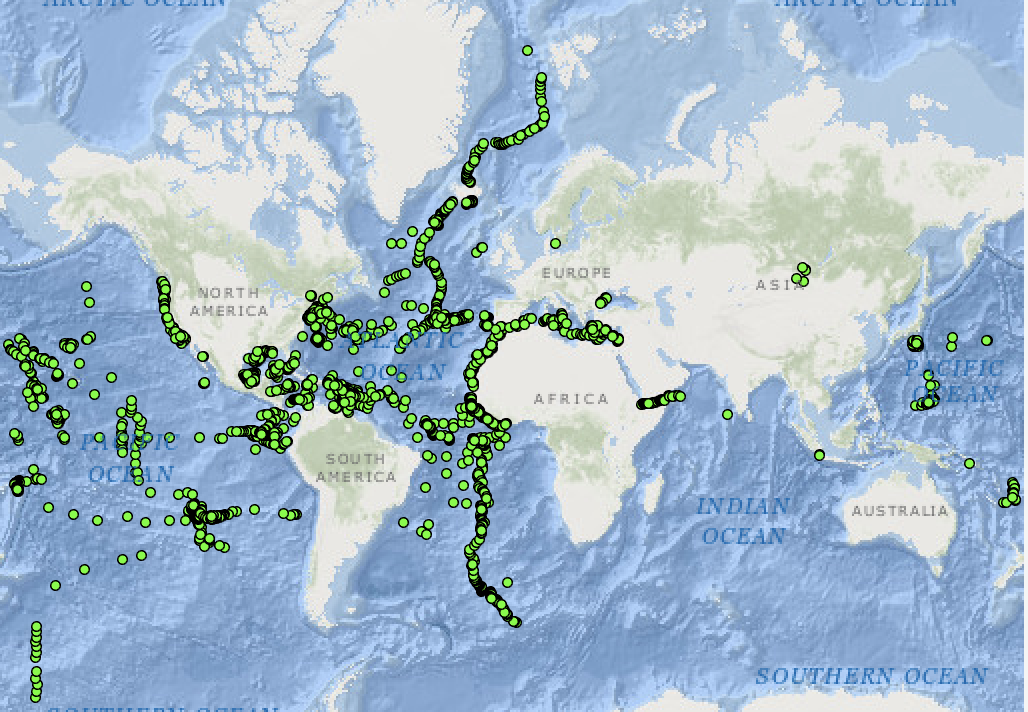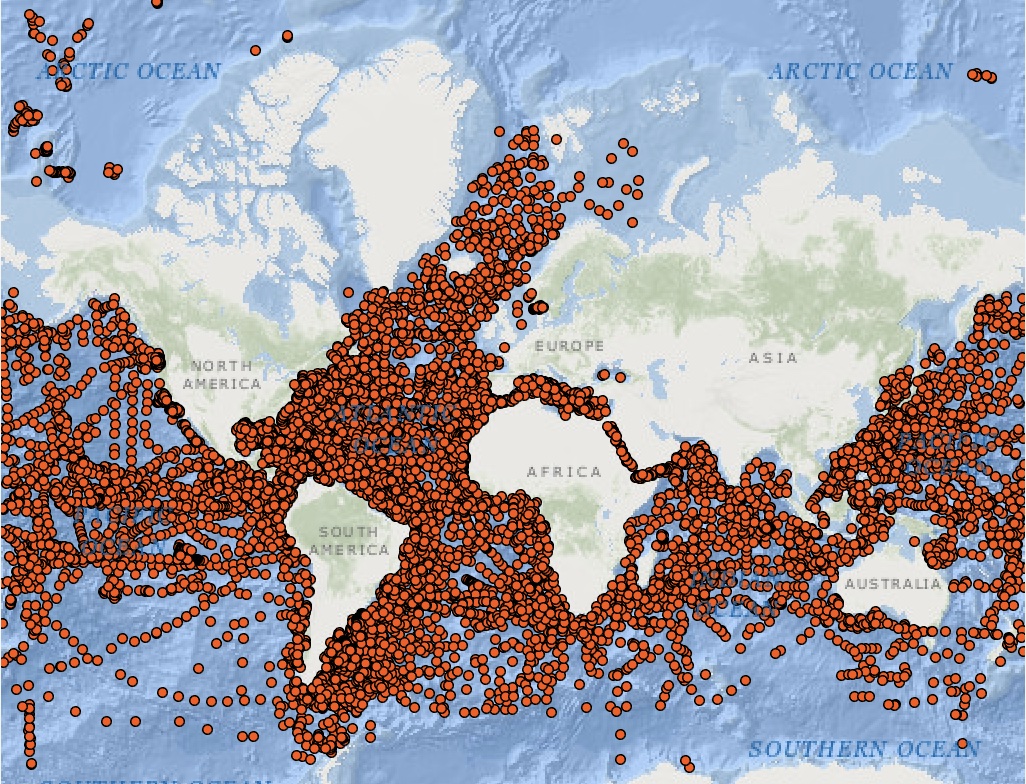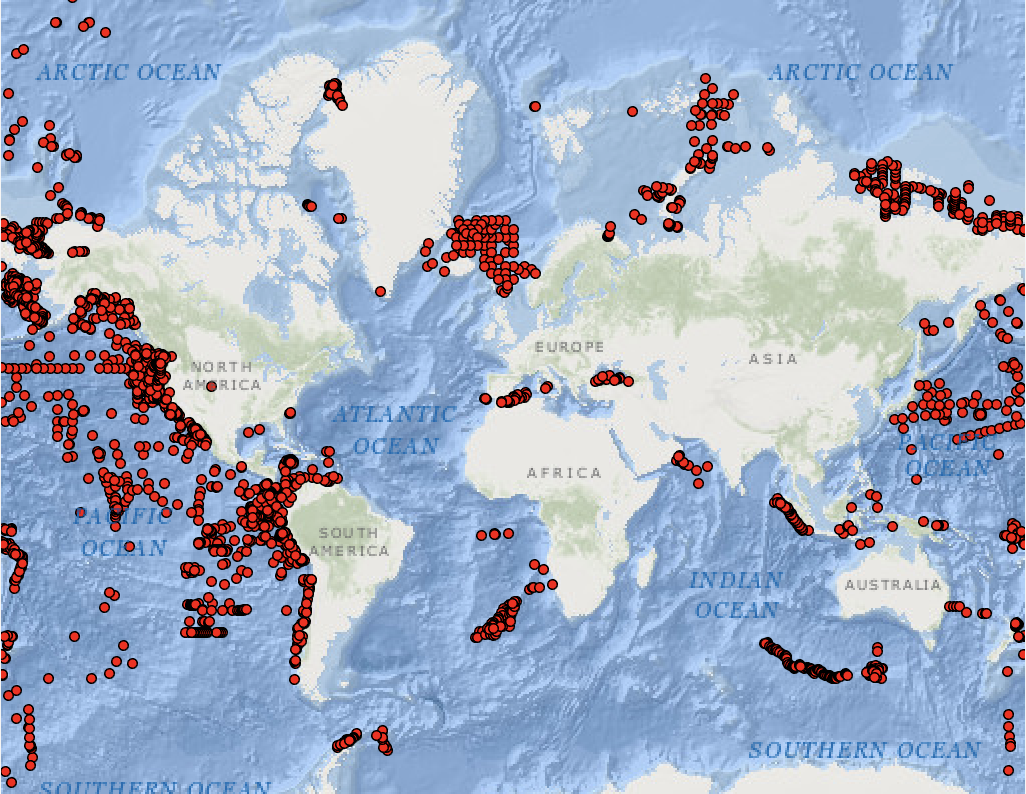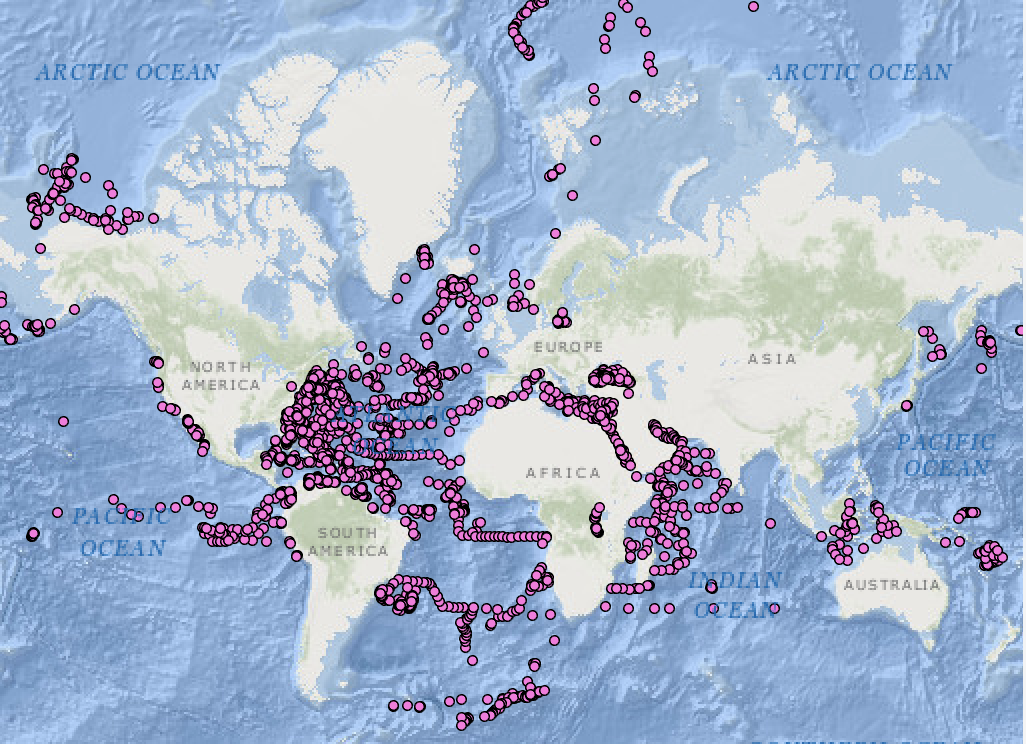

Refer to the reseources below for locating and requesting geological samples for scientific research and Earth science education.
The Index of Marine and Lacustrine Geological Samples was a NOAA database that provided a central listing of geological samples from lakes and ocean basins that are accessible through open-access repositories.
The IMLGS has ended its service through NOAA on 5/5/2025, though work is underway to migrate it to a new home through SESAR. More information is available here.
The Ocean Sciences Division of the National Science Foundation supports open-access marine sample archival at four national repositories in the United States. Each institution hosts a unique collection of sediment cores and rocks from Earth's ocean basins.

The URI MGSL houses 15,000+ rocks, cores, and derived samples from the global ocean basins. Highlights of our collections include dredge samples from plume-influenced spreading centers, ROV grabs from the western Pacific, sediment cores from the Atlantic, equatorial Pacific, and Southern Oceans, and more. In addition to our marine collections, MGSL also houses 7,000+ lava and tephra samples from subaerial volcanoes worldwide. Visit our website to request samples, or use the buttons below to find resources or seek assistance with our collections.

The Lamont-Doherty Core Repository (LDCR) contains one of the world’s most unique and important collections of scientific samples from the deep sea. Sediment cores from every major ocean and sea are archived at the Core Repository. The collection contains approximately 72,000 meters of core composed of 9,700 piston cores; 7,100 trigger weight cores; and 3,000 other cores such as box, kasten, and large diameter gravity cores. We also hold 4,000 dredge and grab samples, including a large collection of manganese nodules, many of which were recovered by submersibles. Over 100,000 residues are stored and are available for sampling where core material is expended.

The OSU-MGR collection includes more than 24 miles of oceanic sediment cores and tens of thousands of marine rock specimens that provide scientists an archive of Earth’s history, including changes in climate, biology, volcanic and seismic activity, meteorite interactions and more. Since 2018, we have also housed the cores of the Antarctic Marine Geology Research Facility.

The Seafloor Samples Laboratory of the Woods Hole Oceanographic Institution is located in the McLean Laboratory on WHOI’s Quissett Campus. The collection contains more than 14,000 archived marine geological samples that have been carefully recovered from the seabed. The inventory includes long, stratified sediment cores, rock dredges, coral cores, surface grabs and samples collected by submersibles.